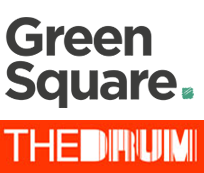4th January 2015
Yahoo’s high-profile chief, Marissa Meyer, is rarely out of the news these days, whether it’s for having twins then dashing back to work; holding lavish $7m parties to the chagrin of certain investors; or buying up firms left right and centre.
Miss Meyer has been nothing if not acquisitive since she became chief. I did a quick calculation and it seems that Yahoo has bought no fewer than 44 startups and established firms since she took over in 2012. The most high-profile of these have been micro-blogging site Tumblr, mobile analytics firm Flurry, ad tech specialist BrightRoll, and, just six months ago, the fashion and style community Polyvore.
FBR suggested that Yahoo might deliver much more value to shareholders if it was either broken up or some of the acquisitions sold off. I think this is what may happen – as I see it, Yahoo is one of those companies whose parts may currently be worth more than the whole.
Despite its reputation as a dusty and declining relic of the 1990s internet boom, Yahoo is still a huge business. According to Alexa, the company that ranks websites on visits, Yahoo receives more visitors than Amazon, Wikipedia and eBay. In fact it is the world’s fifth-most visited website. And it still generates a lot of income – its most recent quarterly figures showed revenues of $1.2bn, considerably more than more fashionable tech poster children like Twitter.
And rather than languishing, the stock price is doing OK, with its market cap at $32.5bn. But truth be told, this is nothing to do with Tumblr, Summily and the other big acquisitions – it’s all to do with Alibaba, the Chinese e-commerce giant in which Yahoo bought a 40 per cent stake 10 years ago. It’s since sold off more than half of that, netting a cool $16.4bn – not bad for a $1bn investment – but its remaining 15 per cent stake in Alibaba is now worth $30bn, about the same as Yahoo Inc in total! Earlier this week the company abandoned plans to spin off the rest of the Alibaba stake, ostensibly to avoid a massive tax bill, but this could point to some sort of break-up or an acquisition of Yahoo being in the wings.
In the hands of a more forward-thinking owner, properties like Tumblr, Flickr or Polyvore could be hugely profitable – and thus are currently very attractive to the right kind of buyer. And the core internet business – email, the Yahoo site itself, as well as assets such as Yahoo Sports and Yahoo Finance – could also be sold off, either piecemeal or as spin-offs, creating a separate, publicly-listed companies.
A decision will need to be made quickly, however, because that legacy business is becoming less valuable by the year (estimates of the value of the core business range from $2bn to $4bn). However, there is no shortage of interest – mobile phone giant Verizon is a potential suitor, and several PE houses are said to be interested – all because Yahoo is still a reasonably strong brand name, the business has good cash flows and there are plenty of opportunities for cost-cutting.
Whatever happens, I suspect that Yahoo will be a very different business this time next year and, given Green Square’s M&A advisory focus, in conclusion to this piece I would like to leave two thoughts with you to mull over the holiday period, which Marissa Meyer may be mulling right now:
In M&A it’s not what you buy, but what you do post-acquisition that counts. The most successful acquisitions are those with a clear strategic fit, excellent chemistry and pre-planned post-acquisition strategy to realise proper value for both vendor and acquirer.
There is a time to sell and accept a strong offer. Eight years ago in February 2008, Microsoft made an unsolicited approach to Yahoo’s then CEO – Jerry Lang – to purchase Yahoo for $44.6bn – a 62 per cent premium to market price at that time. Yang effectively turned it down and the shares tanked, with Yang resigning a few months later. Eight years on, even with Yahoo’s share in Alibaba being worth $30bn, Yahoo in its entirety still isn’t valued at the amount Microsoft offered back then.
